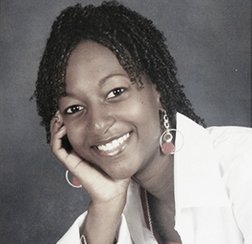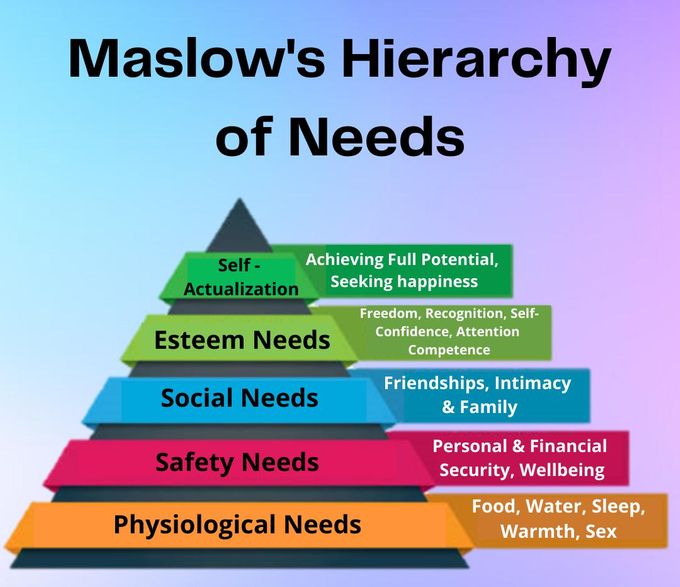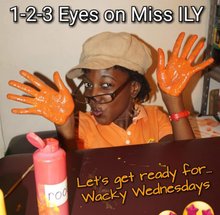HOME OF THE JUNIOR CHAMPS
Felicia Tilborg's Practicum
A guide to succesful personal and professional development. The philosophical principles used will shape each individual's total well being, and is recognized for its holistic and integral coaching methode. The practices in Felicia Tilborg's Practicum are therefore structured in a 1-2-3 theory to implement as a lifestyle, which will bring forth an adequate solution to 3 challenges observed during its development. A methode was essential to set in place in order to:
- Benefit the advanced and underpriveleged learners.
- The group of youngsters with an extraordinary ability, whom lack adequate educational programs nor fundings focussed on this particular group.
- Provide extra curricular activities enhances the ability of the advanced learners and offers underprivalledged individuals the support in order for both to become valuable assets to our community.
The so-called 21st Century ought us to use practical and creative tools. Felicia Tilborg's Practicum therefore uses a transdisciplinary approach for the lateral thinkers amongst us, with as main appreciation on the development of personal and professional competence.
Entertain & Educate
The entertainment character Miss ILY, was derived by Felicia E.L. Tilborg in 2013, with as core value to combine entertainment with education in order to fullfill the edutainment spectacle 1-2-3 Eyes on Miss ILY. Its mission was that all teachings should pleasant, interactive and formulated in a 3 step theory. With over 22+ years of educational and life coaching experience, Felicia E.L. Tilborg a.k.a. Miss ILY gained the title as Professor in the Edutainment Studies and has earned recognition letters, managed others towards award winning status and obtained successful partnerships with:
- Project Development & Coaching Services in NL, USA, Senegal- Dakar, Caribbean
- CareerSource Polk (Previously known as Polk Works), USA
- The Department of Health, USA
- Department of Education, USA
- Department of Children & Families (protective service), USA
- Heartland for Children (Foster care), USA
- SK Entertainment Inc. (Music Artist Management)
- Family Management Centre Inc. USA (Consultancy)
- Management of Billboard & Hollywood Music and Media Award winning artist Shazman
- Management of extraordinary learners and USA Award winning duo “The JC Twins”
- Media acknowledgement for community development services in Suriname
- National and international recognitions and partnerships.
In 2016 during her study Theology at the Evangelische Broeder Gemeente Suriname (Moravian Congregation), her interest increased in missiology. As guideline she used the practical theology principles articulated by Richard Osmer:
- What is going on? (the descriptive-empirical task)
- Why is this going on? (the interpretative task)
- What ought to be going on? (the normative task)
- How might we respond? (the pragmatic task)
Felicia E.L. Tilborg re-evaluated these principles, and excluded the 2nd formulation when fulfilling her purpose as Urban Missionary. She described that the "why" should be the solution to the challenge "Why will you respond?" This awareness lead to completion of the 1-2-3 theory decribed in Felicia Tilborg's Practicum.
The power of educating doesn't root in the overload of lessons, but in the constructive way of teaching. ~ Felicia E.L. Tilborg ed.D
1-2-3 Theory Practice
Implementation of the 1-2-3 theory is a structured practice, which acquires persistance, discipline and motivation. The table below helps to comprehend and implement the theory with quality enhancement during each developmental process.
Personal development process based on the 1-2-3 theory
- Passion
- Action
- Satisfaction (to self and/or surrounding)
Coaching methode according to Felicia Tilborg's Practicum
- Love & care
- Believe in coachee's potential
- Cherish every moment & embrace each accomplishment
Executing the 1-2-3 theory for child's growth and development according to Felicia Tilborg's Practicum with examples:
1-2-3 theory implemented
Assure your coachee that you believe in his/her potential, and create an environment in which everyone happily shares the same objectives.
Executing the 3-step theory for personal and professional development according to Felicia Tilborg's Practicum with examples:
Personal development process based on the 1-2-3 theory
1. Passion
- Be passionate during each step and progression that leads you towards achievement of the goal (even if you don't see instant results)
2. Action
- Daily focus on 1 particular task you'd like for your coachee to accomplish, and seek the supportive environment and tools.
- Execute in small portions daily, and maintain the persistance of the task.
3. Satisfaction
- The passion and the action are the main ingredients to self and/or surroundings satisfaction.
Coaching methode according to Felicia Tilborg's Practicum
1. Love & care
- Build up an appropriate relationship with your coachee.
2. Believe in coachee's potential
- Create an environment and offer tools leading to exploitation of coachee's fullest potential.
3. Cherish every moment & embrace each accomplishment
- Use open ending questions conversations and show mutual respect. Your coachee will often be more responsive to learn any given task if you show interest in their way of thinking. Avoid questions such as: "What do you want to become when you grow up?" ask instead: "What do you want to become and why?" Find supportive tools to achieve that goal in the present moment. If the coachee changes it's objective, ask the same question and continue to work towards that goal.
Parenting is the meal to a child, make sure it offers an adequate amount of nutrition
to grow and prosper. ~Felicia E.L Tilborg
Video example of Felicia Tilborg's Practicum|- 1-2-3 theory
1. Love & care
2. Believe in their potential
3. Cherish each moment & embrace each accomplishment
Felicia Tilborg's Practicum underlines that disturbance in any of these 3 element, may result into imballancement during the process. The e-motion (energy in motion) may reflect negative impulses as a result thereof, which eventually decrease the coachee's self-esteem and potential to achieve self-actualization as described in the Maslow's Hierarchy of Needs.
Abraham Harold Maslow
Abraham Harold Maslow, an American psychologist who was best known for creating a theory in which the fullfillment of the human needs are prioritized and the psychological health process to self-actualization are formulated. In his theory Maslow's hierarchy of needs, the human needs are ordered and should be mostly satisfied before someone would give their attention to the next highest need. The hierarchy of human needs model suggests that human needs will only be fulfilled one level at a time. According to Maslow's theory, when a human being ascends the levels of the hierarchy, one may eventually achieve self-actualization.
Felicia E.L. Tilborg's observation working with people from different ages and various backgrounds, is that self-actualization could be obtained and noticeable each 12 months after birth. Felicia Tilborg's Practicum uses an age appropriate growth and development assesments as tool to administrate each progress reached. The peak abilities observed, she describes as the individual's self-actualization experience at that particular moment in life. Annual growth and development assesments can detect any advancements, but also disabilities, disorders, starting at a child's preliminary stage. These observations can result in a more accurate action plan to execute, in best interest of each human being's growth and development process. Felicia E.L. Tilborg's results are compiled experiences from individuals whom have shown significant results by use of Felicia Tilborg's Practicum|- 1-2-3 theory Portfolios
Felicia Tilborg's Inspiration
Beyond the needs of fulfillment, moments of extra ordinary experiences were envisioned by Maslow. Individuals with these qualities known as ‘Peak Experiences’, encounter wholeness, self-sufficient in an holistic way. These experiences occur mostly by people whom reached the self-actualizing stage in life.
Later writings of Maslow’s theory have shown a more inclusive model in addition to the intense peak experiences, derived from the Indian scientist and yoga practitioner U.A. Asrani and named the Plateau Experience. The shift from Peak to Plateau experience Maslow relates to the natural aging process. This shift in life values is a personal experience, reflects what is actually important in one’s life and what is not.
Furthermore ‘The Great Didactic,’ is 'The Whole Art of Teaching all Things to all Man,' written by Czech philosopher, pedagogue and theologian John Amos Comenius. In The Great Didactic Comenius recommended learning from nature outside its school contexts. Comenius argues that learning should extend beyond the classroom, which takes place in everyday life. Contact with objects in the environment made accumulating information more accessible and relevant to children's interests and life needs.
As an educator of the 21st century, Felicia Tilborg uses a transdiciplinary approach. This provides assistance in development towards self-actualization, which is the fundament of Felicia Tilborg's 3-step theory. It shapes each individual at their own pace and, reaches self-fulfillment according to their age and maturity level. Felicia Tilborg’s Practicum is a practical life-long-learning strategy that creates age appropriate environments consisting parents, family, friends, educators and (academic) life coaches. The (academic) life coaches make it their duty to offer daily meeting services to assist their assigned attendee to successfully grow from childhood to adulthood. The skills used are contextual, mastery based and student-centered. Although there are diverse learning principles, Felicia Tilborg’s Practicum research has shown that in addition to each individual's daily environment, (Academic) Life Coaches are beneficial to achieve a successful life-long learning experience.
Perspective extraordinary learner (13yrs) trained by (academic) life coach Felicia Tilborg
Title of Assignment_ Sociology Written Assignment #1 (2)
Written by Cecilia Khan
Meest recente reacties
25.01 | 18:22
25.01 | 17:51
hi
04.10 | 13:36
Deel deze pagina




